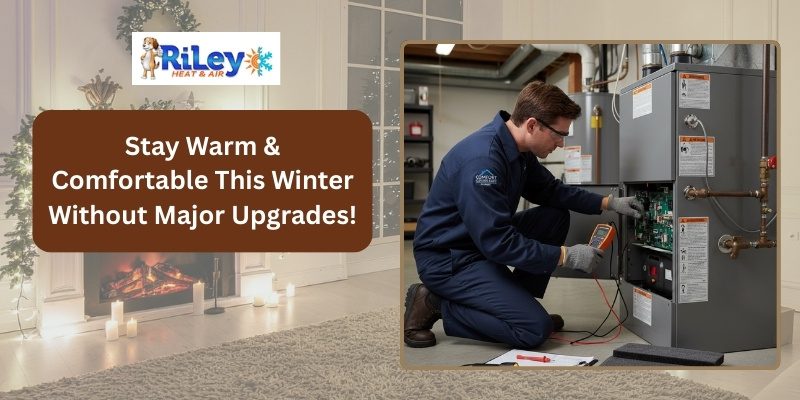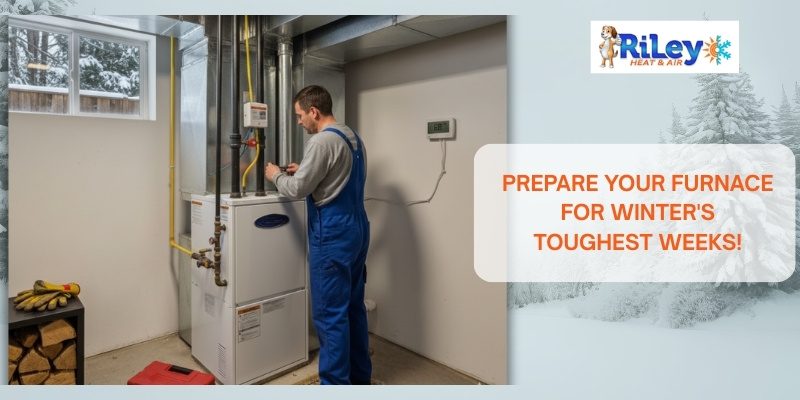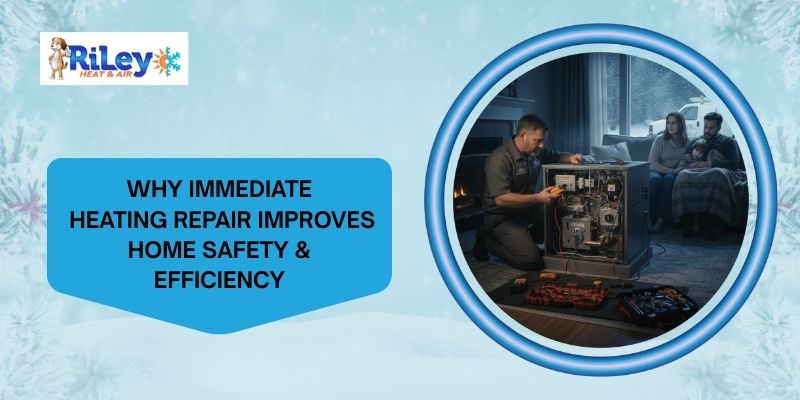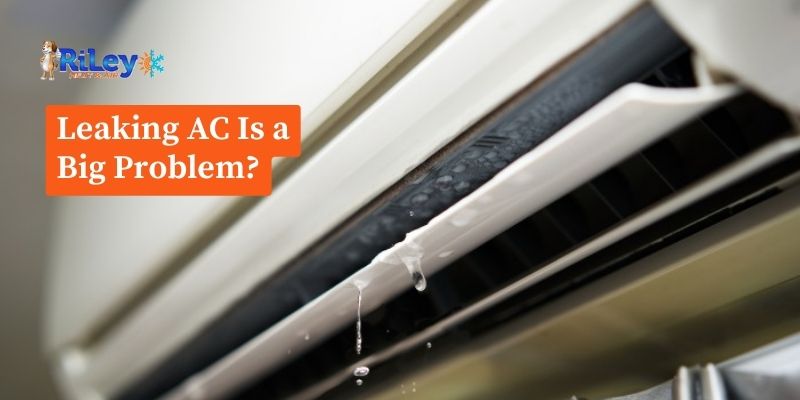
Why Is My AC Leaking Water? Common Causes and How to Fix It
A leaking air conditioner creates frustration because it damages homes and causes discomfort in indoor spaces. Most water leaks within air conditioners result from problems that can be easily repaired. This guide explains the reasons behind your air conditioning leak and provides solutions to solve the problem.
Why a Leaking AC Is a Big Problem
A leaking air conditioner creates more serious complications than visual damage because it can lead to various additional issues.
- The excessive moisture in your home produces a sticky environment.
- People with asthma or allergies experience adverse effects from pollution in the air.
- Damage to the AC unit becomes severe when refrigerant leaks from it.
- The extra work required by your system increases your energy bills.
- The presence of standing water causes damage to both floors and wall surfaces.
- Mold and mildew growth due to excess moisture
- The presence of mold and corrosion inside the unit produces offensive smells.
Common Causes of AC Leaks and How to Fix Them
When you can detect the cause of a leaking AC, you can go ahead and fix it.
1. Clogged Condensate Drain Line
Your AC unit is dependent on a condensate drain line to flush out excess water. The condensate drain line accumulates dust, dirt, algae, and other impurities until the line is completely blocked. Water cannot flow past this blockage, which creates condensate leakage in your home.
Fix: A vacuum, dry or wet, may be employed to clean muck from the end of the drain line to fix a clogged condensate drain line. Regular vinegar line flushes every few months keep the line clean and avoid future clogs.
2. Dirty Air Filter A clogged filter, which gets filled with dust and dirt, will lead to airflow restriction in your AC system. With reduced airflow due to restricted ventilation, the evaporator coil freezes and forms water leaks as the ice melts. The air filter has been replaced due to years of neglect.
Fix: To prevent this problem, regular air filter replacement should happen every 1–3 months. Modern units include filter reminder systems that alert users about replacement time. Regular filter maintenance sustains proper airflow and decreases the likelihood of water leaks.
3. Frozen Evaporator Coil
The evaporator coil freezes due to inadequate airflow and insufficient refrigerant levels. The coil's freezing results in substantial water leaks during its melting process. Your AC system's underlying condition may be severe, so you should resolve the problem immediately.
Fix: Your first action should be to turn off the air conditioner and wait for the evaporator coil to melt. After the ice melts, you should inspect the air filter to verify its condition. When the issue does not resolve itself, a professional HVAC technician should inspect refrigerant levels and fix any underlying problems.
4. Low Refrigerant Levels
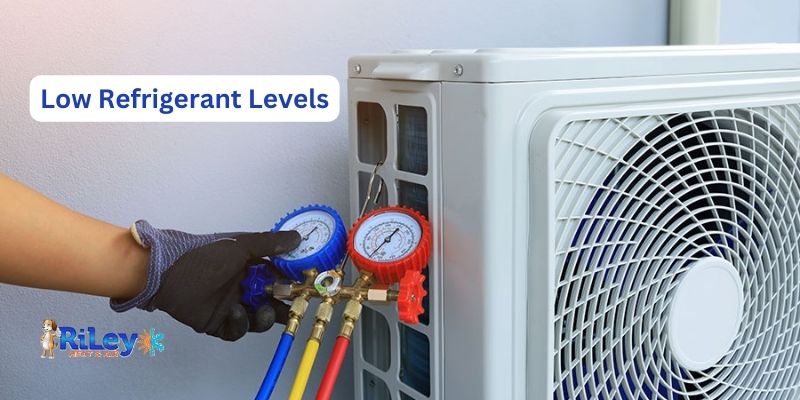
Low refrigerant levels can freeze the evaporator coil, resulting in water leakage during melting. You should check for low refrigerant when your air conditioner stops cooling properly and starts making hissing sounds.
Fix: Handling refrigerant requires certified HVAC technicians. Professional assistance is needed to inspect the refrigerant and perform a refill when you observe signs of low refrigerant to maintain efficient AC operation and prevent leakage.
5. Broken or Missing Float Switch
A float switch is a vital system that activates your AC to shut off when the drain pan contains too much water. A faulty or missing float switch allows water to accumulate until it causes interior leaks in your house.
Fix: Verify that your AC unit contains a float switch that operates correctly. The solution for this issue involves replacing the float switch, an easy way to stop water from damaging your living area. The replacement process needs to be executed properly to prevent future complications.
6. Damaged Drain Pan
The drain pan used to collect AC water develops damage as the unit ages beyond 12–15 years. Water leakage becomes possible when corrosion, cracking, or rusting damages the unit.
Fix: Repairing the damaged drain pan remains essential because it prevents water leakage. It is vital to perform this repair on units beyond twelve years of age. Your decision to replace the entire system becomes necessary when your AC approaches its natural lifespan because it will prevent bigger problems from developing.
7. Broken Condensate Pump
The condensate pump in basements and lower-level installations moves water outside the system. A malfunction or breakage of a condensate pump allows water to reverse its flow inside, resulting in leaks. The problem most commonly occurs in air conditioning units below ground level or in basements.
Fix: A broken condensate pump needs immediate attention because failure to replace or repair it will result in water accumulation, which leads to leaks. Repairing internal components requires professional expertise, so you should hire a technician to avoid mistakes during the fix.
8. Improper Installation
How an air conditioning unit is installed affects the drain line system, its alignment, and water accumulation in unintended areas. Prolonged water damage will affect the system's operation.
Fix: If you suspect improper installation, contact an HVAC technician to inspect your system. The professionals will detect and fix drain line positioning problems and equipment setup errors to avoid system leaks and ensure proper operation.
When to Call a Professional
Filter replacement and drain line cleaning are suitable for do-it-yourself maintenance, yet professional expertise is needed to resolve problems such as refrigerant leaks and pump failures. Self-attempts to resolve these problems will produce worse results than they can fix.
Tip: Regular scheduling of maintenance checks prevents leaks, which improves the life expectancy of your air conditioning unit.
Conclusion
A leaking AC can cause severe damage and discomfort, yet most of its typical causes are solvable through regular maintenance. Regular maintenance and repairs will prevent future problems from growing, such as mold formation, high utility costs, and possible system breakdowns.
Contact Riley Heat & Air for professional service to enhance your system's efficiency and prevent leaks.
Tags :


